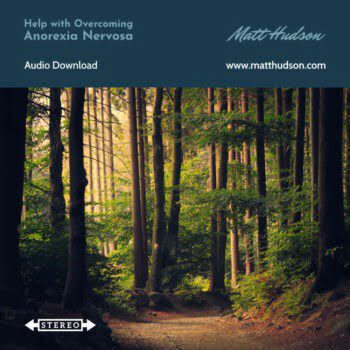Anorexia Nervosa
£29.99
– Designed for anyone who wants to overcome anorexia
– A powerful aid to self-hypnosis
– Hemi-Sync® audio production
– Creates a calming mental state that accelerates natural healing
– Stimulates the release of dopamine, oxytocin, serotonin and endorphins
– An essential part of your recovery toolkit
Description
What is anorexic?
Anorexia interesting facts
Half of anorexia sufferers have comorbidity issues e.g., anxiety, OCD or social phobias.
Up to 50% of anorexics have a mood disorder such as anxiety or depression.
Men suffering from anorexia are less likely to have access to mental health services.
Organs in the body may be permanently damaged owing to lack of nutrition.
There are two types of anorexia, one is restrictive, and the other is purging.
Anorexia is very difficult to diagnose as the anorexic person fears being found out, they will go to many lengths to hide it.
What is the cause of anorexia?
Anorexia types
People who suffer with eating disorders, whether clinically diagnosed or not will be preoccupied with food and their body weight. The anorexic or those suffering with anorexia come in 2 types
- the restricting type who are focused on not eating and remaining below a certain size, shape and weight.
- the purging type who has eating binges, vomit, use laxatives or masses of exercise to maintain a calorie deficit.
Is anorexia and anorexia nervosa the same thing?
When one considers ‘starving the self’ from a metaphysical level, then it’s easier to understand why someone would want to starve themselves. It’s the ‘Identity’ of the person that is at odds with their current reality, adjusting this perception is key to taking hold of the mind again. Although it’s very difficult, as most people who suffer rarely get the help they need because current medical models focus on the physical.
Anorexia nervosa continues to be a problem for a growing number of people who are treated by a medical system, which uses Descartes thoughts ‘only matter can impact matter’ in the 21st century more and more physicians are waking up to the reality that ‘non-matter can impact matter’ i.e., thoughts can have an effect on the body.
What are typical characteristics of a person with anorexia nervosa?
Anorexia physical symptoms/anorexic body
Physical symptoms of anorexia include
- Abdominal pain
- Cold hands and feet
- Dehydration
- Extremely low body weight
- Hair loss on the scalp and hair growth over the rest of the body (lanugo) in the bodies effort to conserve heat
- Loss in bone density
- Muscle loss and weakness
- Paled, dry skin
Anorexia nervosa signs
Signs that someone has anorexia can fall into different categories – physical, emotional and behavioural. These include:
- Stomach cramps
- Always needing to exercise
- Not wanting to eat with others
- Fatigue
- Perfectionism
- Secretive around food/hiding or getting rid of food to avoid eating
- Constantly thinks or talks about body shape and size
- Withdrawal from friends/family
- Weighing themselves often
- Anxiety
- Constantly seeking approval
- Depression
- Self-critical in all areas
Hypnotherapy for Anorexia Nervosa
My Audio Download
This audio production is designed to help the listener with overcoming anger issues; by clearing negatively charged Emotional Memory Images from your external screen, your mind and body are able to adapt to the present moment, allowing you to enjoy life free of limiting subconscious patterns. This audio is your own personal 1 to 1 session with Matt, always available at your convenience.
Matt’s calming, assuring voice gently guides both your conscious mind and unconscious mind towards healing through the left and right ear respectively. By tapping into the body’s psychoneuroimmunilogical mechanisms – the link between the mind, nervous system and physical wellbeing – this audio promotes a healthy body image and mental balance.
For best results, listen to this audio download first thing in the morning or during the day, every day for 4 weeks. Ensure you’re free from interruptions and distractions when listening to this audio. Download now to start overcoming anorexia nervosa today.
This audio is a .MP3 file, compatible with smartphones, tablets, PC’s and other electronic devices.
Audio length: 30 minutes.




